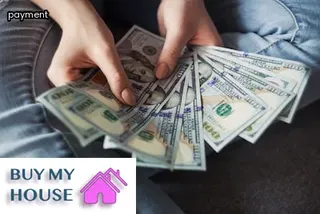Mortgage forbearance is an important factor to consider when refinancing a loan as there are specific rules and regulations that impact the process. During the forbearance period, lenders typically require borrowers to make up the payments that were missed.
This can increase the total amount borrowers need to repay, making it difficult for them to refinance at their current interest rate. Additionally, lenders may not accept applications for refinancing until after the forbearance period is complete.
As such, it is important for borrowers to understand how their mortgage forbearance affects their ability to refinance. Furthermore, borrowers should be aware of any additional fees or penalties they may face if they choose to refinance during or after their forbearance period.
By researching potential lenders and understanding all of their options, borrowers can find the best way to refinance after forbearance while navigating mortgage rules and regulations.

Refinancing after experiencing mortgage forbearance is not always the best option for homeowners who are struggling with their finances. There are a number of alternatives to consider when navigating the complex rules and regulations surrounding mortgage payments.
Homeowners should first determine whether they qualify for loan modification, which can aid in lowering their monthly payments or adjusting their loan terms. Additionally, they may be eligible for a repayment plan, which would allow them to spread out any missed payments over an extended period of time.
Another potential solution could be refinancing with a different lender and taking advantage of lower rates or more favorable terms offered by other institutions. Lastly, home equity loans and lines of credit provide viable options if homeowners have sufficient equity in their homes, allowing them to stay in their homes while paying off debt or other expenses.
Ultimately, it is important to explore all available alternatives before making a decision that will impact your financial future.
Mortgage forbearance is a temporary solution that has become increasingly popular for many homeowners in recent years. This type of loan relief allows borrowers to pause or reduce their mortgage payments for a specific period of time with the understanding that they will resume their regular payment schedule once the forbearance period has ended.
While this can provide much needed relief to homeowners struggling to make their payments, it's important to understand both the benefits and drawbacks of this type of loan modification before taking advantage of it. Benefits include immediate financial relief, as well as additional time given to find more permanent solutions such as refinancing.
Drawbacks include added interest charges, fees, and taxes which can significantly increase the overall cost of the loan over time. Additionally, there are rules and regulations that must be followed during the forbearance period in order to maintain eligibility for future options like refinancing.
For these reasons, it's important that borrowers carefully consider all decisions regarding mortgage forbearance before taking any action.

Forbearance is a great way for homeowners to manage their debt during difficult financial times, but it can also delay their ability to refinance. Refinancing after a period of forbearance requires understanding the complex mortgage rules and regulations that govern the process.
It is important to know how frequently forbearance delays a refi before making decisions about finances and refinancing. In many cases, it can take up to 12 months after forbearance ends before homeowners are eligible to refinance.
It is crucial that homeowners do their research and stay abreast of current rules and regulations surrounding refinancing in order to make informed decisions about their finances. Some lenders may be willing to refinance sooner, so it is always best to check with your lender and see what options exist for you.
Additionally, homeowners should take into account factors such as credit score, loan balance, interest rate, loan term and type of loan when considering whether or not they should pursue refinancing after a period of forbearance. Ultimately, the decision must consider all available information in order to ensure that any refinancing option chosen serves the homeowner's best interests financially.
When facing the potential impacts of extending a loan term after forbearance, it is important to consider the overall implications that this may have on a homeowner’s financial situation. One should analyze the various mortgage rules and regulations when considering refinancing after forbearance, as well as evaluating the best approach for restructuring existing debt.
It is also essential to understand the long-term effects that extending a loan can have, such as increased interest rates or additional fees. Homeowners should also be aware of provider-specific requirements when refinancing and be sure to compare offers from multiple lenders in order to find the best terms for their individual situation.
With careful analysis and exploration of available options, homeowners can make an informed decision about how best to refinance after forbearance.

For many homeowners, the end of forbearance can create a sense of urgency to refinance their mortgage. However, it is important to assess your individual situation and the various rules and regulations in order to make sure you are making the right decision for your financial future.
Timing is key when it comes to refinancing a mortgage, as there may be fees or penalties that increase after the forbearance period ends. It is important to analyze the total amount of interest and closing costs in order to ensure that you are getting a good deal on your new loan.
Additionally, understanding how soon you will start accruing interest again can help you better determine if refinancing makes sense for your situation. It is also helpful to consider whether prepayment penalties exist or if there are other restrictions associated with refinancing your loan.
Finally, being aware of any lender incentives or programs that could help reduce costs or fees associated with refinancing can be invaluable when navigating the process. With proper research and understanding of the rules and regulations involved in refinancing after forbearance, homeowners can make informed decisions and get back on track with their finances.
When it comes to making financial decisions after forbearance, it is important to assess your priorities. Before finding the best way to refinance, you need to consider the current market conditions and mortgage industry regulations in order to make sure you are making the most informed decision.
Before refinancing, take time to review your budget and personal financial goals such as debt reduction or savings accumulation. The goal should be to find a program that meets your priority goals and also offers competitive terms that fit within your budget.
Consider options such as fixed-rate mortgages and adjustable-rate mortgages, along with other features such as no closing costs or lower down payment requirements. It is important to understand all of the benefits and risks associated with each option before committing.
Additionally, research various lenders or brokers who may be able to offer the best rate for your specific situation. Taking these steps will help you create an action plan tailored specifically for your unique needs so that you can make the most of refinancing after forbearance.

When considering refinancing after forbearance, it’s important to understand the rules and regulations that go along with mortgage lenders. While there can be advantages to refinancing, such as lower interest rates or a longer term, it is essential to weigh the risks associated with the process.
Before deciding on a new loan, borrowers should become familiar with their current loan terms and requirements. They should also consider whether they have sufficient equity in their home and if they will be able to meet the payments of a new loan.
Additionally, understanding what type of refinance is available is key; cash-out refinances are more complicated than rate/term refinances and may require higher credit scores or more documentation. Knowing all these details can help borrowers determine which option is best for them.
When dealing with a mortgage after forbearance, it is important to make informed decisions about the best way to refinance. Knowledge of the current mortgage rules and regulations can help you determine your options and find the right solution for your situation.
Knowing what questions to ask, such as whether or not you can qualify for a lower interest rate or if there are any fees associated with refinancing, is essential in helping you make the most financially beneficial choice. Researching reputable lenders to find out their terms and eligibility requirements is also important when considering which refinancing option is best for you.
Staying up-to-date on fluctuating laws related to forbearance, mortgages, and other types of loans can help ensure that you understand all of your available options and make an educated decision about how to proceed post forbearance.

When considering a refinance after forbearance, homeowners must assess if it is the right move for them. Whether it's an effort to lower monthly payments or pay off the loan faster, there are several factors to consider.
Homeowners should research their current financial situation and compare their options for refinancing, including interest rates and payment terms. They should also determine the amount of equity that they have in their home because this could affect the terms of the refinance.
Additionally, borrowers should be aware of any additional fees associated with their new loan, as well as any potential tax implications. Understanding all of these elements will help homeowners make an educated decision on whether refinancing is the right choice for them.
When considering refinancing a mortgage, bad credit can be a major factor in determining eligibility. It is important to understand how lenders assess credit reports when assessing an application.
A low score may affect the ability to secure a lower interest rate and other advantageous loan terms. Before applying for a refinance, borrowers should carefully review their credit history and work to improve their score if necessary.
Credit histories are typically reviewed by lenders to ascertain whether or not borrowers have missed payments, incurred delinquent debts, or maxed out credit cards. Additionally, lenders will evaluate the borrower's debt-to-income ratio and determine if they can afford a new loan payment.
Borrowers with poor credit may need to seek out specialized lenders who offer more lenient guidelines that accommodate individuals with lower scores. By weighing all of these factors and understanding the rules and regulations associated with refinancing after forbearance, borrowers can make informed decisions regarding the best way forward for their financial future.

For borrowers with poor credit scores, navigating the complexities of mortgage rules and regulations can be a daunting task when it comes to refinancing. It is important to review all loan options carefully and do research on lenders who specialize in mortgages for those with lower credit scores.
Additionally, working with a financial advisor or loan officer can help borrowers understand their options and make informed decisions about their refinancing plans. Borrowers should also consider how long they plan to stay in their home as well as the advantages and disadvantages of adjustable vs.
fixed-rate mortgages before applying for one. Furthermore, some lenders offer special programs that may be beneficial for those with poor credit scores such as lower interest rates or special incentives for paying off the loan quickly.
Ultimately, it is essential for borrowers with poor credit to investigate all loan options thoroughly in order to find the best way to refinance after forbearance.
For self-employed borrowers looking to qualify for a mortgage, understanding the rules and regulations can be a daunting task. Refinancing after forbearance can be especially tricky due to the extra steps required to prove financial stability.
To make the process easier, it is important to know which documents need to be provided, such as tax returns and proof of income. Additionally, having an up-to-date credit report on hand can help lenders determine an accurate credit score and assess the borrower’s ability to pay back a loan.
When applying for a mortgage or refinancing after forbearance, obtaining pre-approval from multiple lenders is wise in order to get the most competitive rate. Most importantly, when seeking a mortgage or navigating refinance options after forbearance, borrowers should always consult with an experienced professional who understands how to navigate the complexities of mortgage rules and regulations.

Refinancing your mortgage after a forbearance period can be tricky and confusing. It is important to understand the different rules and regulations in order to successfully refinance without making any common mistakes.
Keep in mind that under the CARES Act, many mortgage servicers are offering special refinance options for those who have been granted forbearance. When refinancing, make sure to check both the interest rate and monthly payment amounts.
Additionally, pay attention to closing costs and other fees associated with the loan as these can add up quickly. Also, beware of predatory lenders who offer advertised low-interest rates but require high fees or include additional charges not included in the original agreement.
Lastly, if you are considering refinancing with a different lender than your current one, be sure to shop around for the best deal and read all contracts carefully before signing anything. With careful consideration and research, you should be able to find an ideal refinancing option after your forbearance period ends.
Navigating the rapidly appreciating home market is an exciting yet intimidating process. Buying a home is often one of the biggest investments an individual can make, and understanding the complex mortgage rules and regulations associated with refinancing after forbearance can be overwhelming.
Knowing the best way to refinance after forbearance requires a thorough understanding of current market trends and interest rates as well as how to properly leverage mortgage programs offered by lenders. Looking at your personal financial situation and weighing the pros and cons of refinancing are also essential steps in deciding if you should refinance after forbearance.
It's important to educate yourself on all available options before making a decision about refinancing, such as considering loan programs like cash-out mortgages or adjustable rate mortgages that could save you money in the long run. Additionally, getting pre-approved for a loan from your lender prior to house hunting can provide you with an advantage when it comes to submitting offers in this competitive market.
Taking time to research different lender options and compare their rates can help you find the best deal for your situation.

In today's tumultuous economic climate, it can be difficult to find financial stability. Refinancing after mortgage forbearance is one way to ensure your finances remain secure.
To successfully navigate the changing mortgage rules and regulations, it's important to understand the details of your loan, as well as how you can use refinancing to improve your financial situation. Knowing the differences between a fixed-rate and adjustable-rate mortgage is important when evaluating which option is best for you.
Additionally, understanding the terms of forbearance and how they relate to refinancing will help you make an informed decision about how to move forward. Researching lenders and their offerings carefully may also help you find a more favorable rate or more flexible terms for your loan.
Before making any decisions about refinancing, consider speaking with a financial advisor who can provide insight on the best way to refinance in the current market conditions.
Yes, you can refinance if you have a forbearance. It is important to understand the mortgage rules and regulations applicable to your situation before taking any steps to refinance.
Depending on your lender and state, there may be different requirements that need to be met in order to qualify for refinancing after forbearance. You should work with an experienced mortgage specialist who can guide you through the process and help you secure the best loan terms available.
A qualified mortgage professional can help you review your options and identify any potential roadblocks when it comes to refinancing with a forbearance history. Refinancing after a forbearance allows borrowers to take advantage of current interest rates and lower their monthly payments, helping them get back on track financially.

When it comes to understanding how forbearance affects your credit score, it is important to understand the rules and regulations that come with mortgage refinancing.
It is well-known that a forbearance can have a negative effect on your credit score; however, if you are in financial distress and need assistance, then this may be the best option.
It is critical to know that while there is potential for a short-term negative effect on your credit score due to the forbearance, you can still refinance after the forbearance period ends and work to rebuild your credit.
With careful consideration of mortgage rules and regulations related to refinancing after a forbearance period, it may be possible for you to get back on track financially with minimal damage done to your credit score.
Yes, you can refinance after forbearance with Fannie Mae. Fannie Mae is a government-sponsored enterprise that provides mortgage liquidity by buying mortgages from lenders and securitizing them into mortgage-backed securities.
The current Mortgage Forbearance program allows borrowers to suspend or reduce their mortgage payments for up to 12 months due to hardship caused by COVID-19. After the forbearance period is over, borrowers have the option to refinance their existing loan with Fannie Mae if they meet certain criteria.
To qualify for refinance, borrowers must show proof of employment, demonstrate an ability to pay the new loan terms and have a credit score of at least 620. Additionally, borrowers should be able to document any income received during the forbearance period and provide proof of sufficient liquid reserves to cover at least three months of principal and interest payments on the new loan.
Borrowers should also understand that there are fees associated with refinancing a loan through Fannie Mae as well as other costs such as closing costs and private mortgage insurance (PMI). Finally, it's important for borrowers to review their options carefully before committing to a refinance because each lender may have different rules and regulations related to refinancing after forbearance with Fannie Mae.
Yes, forbearance does have an effect on refinancing. When a homeowner has been in forbearance, they need to be aware of the mortgage rules and regulations that may have changed due to their situation.
Refinancing after forbearance requires extra diligence when it comes to examining mortgage rates and terms, as there are specific rules for borrowers who have gone through a forbearance period. It is important for homeowners to understand how their credit score will be affected by refinancing and what documents they need to provide in order to prove their financial stability.
Additionally, it is important to know how long it will take before any new loan can close, so that the homeowner can plan accordingly. By ensuring they understand all of the mortgage rules and regulations that apply to them, homeowners can successfully navigate the process of refinancing after a forbearance period.